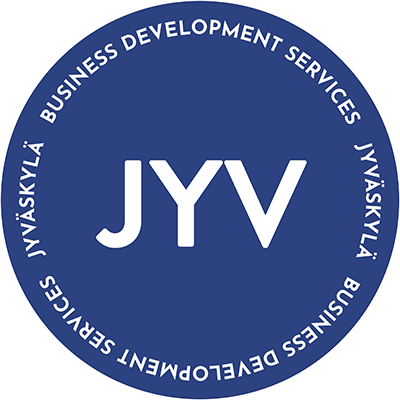OECD report on the state of the circular economy in Jyväskylä

The Organisation for Economic Cooperation and Development (OECD) has published a report on the state of Jyväskylä's circular economy and its management compared to peer cities in Europe.
"We have succeeded in promoting the circular economy in various fields and in building good cooperation with stakeholders. The OECD report provides good recommendations for moving forward. For example, we need more city-level data and more established ways to promote the circular economy," said Mayor Timo Koivisto at the report's publication event on 15 April 2025 during the OECD Urban Days in Paris.
A green pioneer in promoting the circular economy
The report shows the long-term work of Jyväskylä in promoting the circular economy. The City of Jyväskylä has pioneered bio-waste separation since 1996, implementing mandatory collection decades ahead of national requirements.
The report also highlights Jyväskylä's nature-based policies and strong nature conservation identity. It acknowledges that Jyväskylä has surpassed the national average in reducing CO₂ emissions and in waste reduction and recycling rates.
The OECD assessed the state of the circular economy in Jyväskylä on 12 dimensions. While the city's strengths include stakeholder engagement and extensive circular economy promotion, there is room for improvement in awareness and transparency as well as data and assessment.
From experiments to more established approaches
In Jyväskylä, the circular economy is promoted by the Resource-wise Jyväskylä 2040 Programme, which is a strategic programme of measures approved by the City Council. The OECD report presents recommendations and suggestions for speeding up the circular economy.
According to the report, Jyväskylä has made significant progress in experimenting with circular economy solutions, but the projects have remained isolated, focusing on sectoral or local solutions. Public awareness of the circular economy is also largely tied to the experiments conducted.
The report highlights that Jyväskylä lacks a structured framework for scaling successful pilot projects. In addition, the report recommends that the Circular Economy Green Deal of the Ministry of the Environment become a fundamental part of the future reform of the City Strategy and the Resource-wise Programme of Jyväskylä.
The report shows that Jyväskylä has a strong innovation ecosystem with universities, research centres and start-ups promoting circular economy initiatives, but research-driven innovations and entrepreneurial efforts lack systematic integration into city-wide planning. Moreover, the report assesses that there are insufficient incentives for circular economy innovation.
Other challenges identified in the report include the lack of effective coordination within the city organisation, leading to fragmented efforts to achieve the city's goals. The report also points out that the city organisation has not allocated a specific budget to promoting the circular economy. Instead, funding for circular economy projects is often provided by external EU programmes. Regulatory instruments, such as public procurement, do not effectively contribute to the circular economy market.
Gaps in environmental and consumption data limit comprehensive circular economy assessment
The OECD report highlights challenges related to monitoring data in particular. Although additional data sources at national and regional level, such as Ylva and Materiaalitori, complement the city's monitoring activities, there are no relevant city-level indicators for material consumption and circular use rate, for example, which would provide a clearer picture of how effectively Jyväskylä is progressing towards a circular economy.
According to the report, there is confusion between the concepts of resource wisdom, circular economy and sustainability in Jyväskylä. Although the resource-wise approach is integrated into the city's administrative culture, it remains unknown to the wider public.
Jyväskylä's opportunities and means to reduce material consumption
The report shows that Jyväskylä has a unique opportunity to lead circular transformation by capitalising on its student population, robust business field and start-up culture and diverse innovation environment.
The report lists practical ways to reduce material consumption and extend the lifecycle of products, for example by supporting and implementing shared facilities, communal storages and tool libraries, community-driven repair cafés and reuse hubs. The report also recommends supporting business opportunities that extend the life cycle of products, such as companies providing repair, refurbishment and aftersales services.
The report encourages research into a circular nutrient recovery system, a city-wide collection system for food waste and biomass exchange service as well as expanding urban and suburban farming and further strengthening the storm water system.
The research is based on interviews and data collection
The study analyzes the current state of the circular economy in the region and provides recommendations to accelerate the transition to a circular economy in Jyväskylä. OECD representatives interviewed over fifty representatives from local businesses, associations, and public organizations in Jyväskylä in September 2024. The study also included comprehensive data collection and background research. In Finland, the Ministry of the Environment also participated in the study.
Similar studies have also been conducted in Zuid Holland in the Netherlands, Strasbourg in France, Møre and Romsdal in Norway, Berlin in Germany, Comunitat Valenciana in Spain, Matosinhos in Portugal, Central Macedonia in Greece, Sofia in Bulgaria, and Western Ireland.
The study conducted by the OECD is part of the European Commission's Circular Cities & Regions Initiative (CCRI), which Jyväskylä applied to join in 2022.
The report can be found on the OECD website: The Circular Economy in Jyväskylä, Finland
For more information:
Environmental Specialist Outi Manninen, tel. +358 40 5653066
Program Manager Timo Harju, tel. +358 50 5959198
Project Manager Timi Tiira, tel. +358 40 5536697
Oriana ROMANO, PhD, Head of Unit, Water Governance, Blue and Circular Economy, Cities, Urban Policies, and Sustainable Development Division, Centre for Entrepreneurship, SMEs, Regions, office: +33 1 45 24 7686, oriana.romano[at]oecd.org
Photo: Adrien Personne
Read more: https://elinkeinopalvelut.jyvaskyla.fi/en/news/oecd


